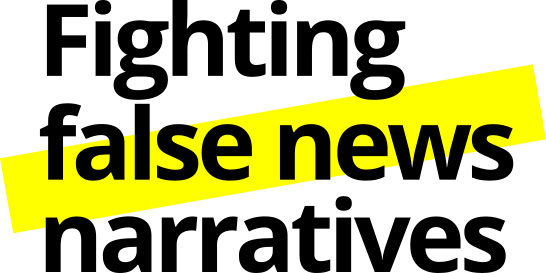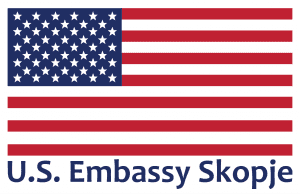On 7 February 2022, Program Manager of the project “Fighting False News Narratives” – FN, Rosana Aleksoska appeared on “Utrinski brifing”. The topic of the show was disinformation and the influence of Russia and China in the Balkans.
Among the other things, Aleksoska stated the following:
“The researchers that have been engaged within this topic identified five main techniques of disinformation. The first one is discredit, or attack, i.e. when someone does not have arguments they attack the person. The second technique is distort(ing) which favors certain narrative. In example, in the case with the assistance for COVID-19 that was provided at the beginning of the pandemic, Russia and China were portrayed as countries that saved the region, the number of interactions of those articles was very high and we have noticed amplification of this narrative on the social networks. Another technique that is used is defocus, such as the case with the introduction of 5G technology in the country, which even provoked demonstrations in one municipality.”
Aleksoska also stated the following:
“Taking into consideration everything that we have observed within the study ‘Disinformation and Information Distortion in North Macedonia’, in our country and in the region, the influence of Russia is exercised in the form of a so-called “sharp power”. It is about an authoritarian regime that violates freedom of speech, while it imposes its influence in the free societies. In the vulnerable societies such as ours, it functions in the manner in which it perforates the information space in order to influence citizens’ perceptions.”
She stated that there is a battle between two concepts of values – the democratic societies vs. the illiberal regimes and added that there is such space here, since the Balkan is vulnerable to the influences from Russia and China.
“The causes for the vulnerability of societies is the fragmentation and the political and religious differences, which makes it easier for the foreign factors to impose their narratives.”
Aleksoska stated that: “A more comprehensive approach is needed, i.e. inclusion of and cooperation between various institutions and factors, both domestic and foreign, especially from our NATO and EU allies, however, there is also a need of a wider public debate, and, most importantly, it is high time to acknowledge that there is a problem in this country with Russia.”
You may watch the show on the following link.





